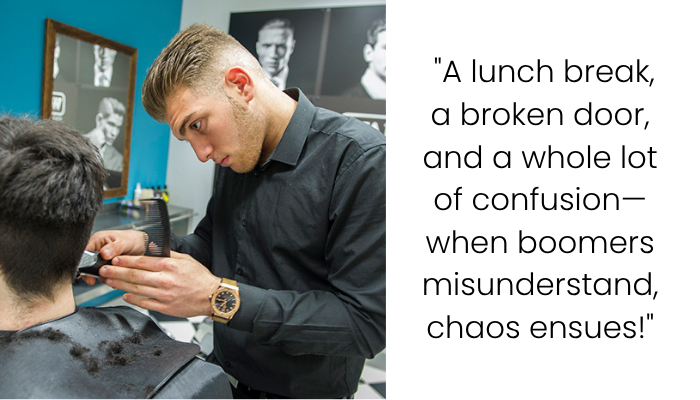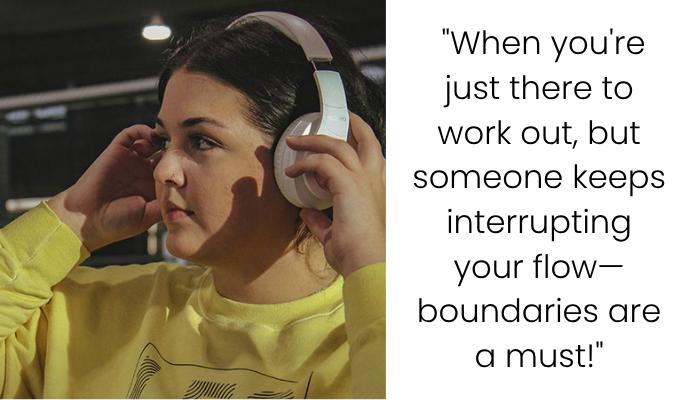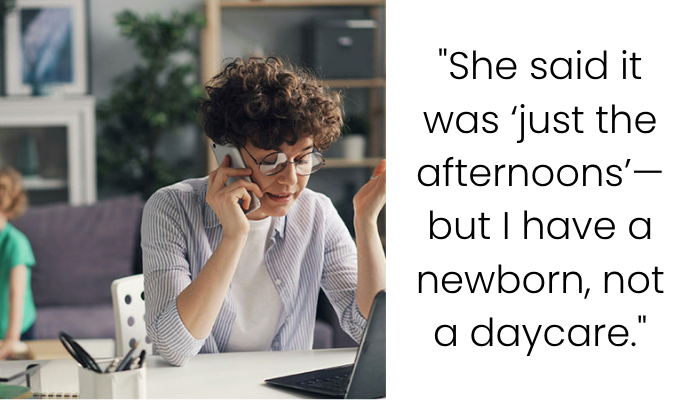Boomers, a Broken Door, and a Wellness Check: The Lunchtime Chaos That Led to Arrests

In this humorous and frustrating “Boomer” story, a West Virginia barbershop owner recounts a bizarre encounter involving two older clients, a broken door, and a wellness check from the police. The incident started when the OP, who operates a barbershop, took a lunch break to provide a special service for a group of Fallout 76 fans. After the OP left for lunch, two older clients, suspicious that the shop was left unattended, called the police to report an alleged break-in. When the police arrived, they found that the real issue was that the boomers had actually broken into the shop themselves, mistakenly thinking it was unoccupied. This misunderstanding led to a confrontation, insults, and a police intervention, with the boomers ultimately facing charges for breaking and entering.
Advertisement – Continue Reading Below
The story humorously highlights generational differences, with the OP noting that while they enjoy working with most clients, encounters with older clients tend to bring frustration and bigoted comments. The story ends with one boomer being arrested and the other attempting to hitchhike home, painting a vivid picture of the chaos caused by a simple lunch break.
Some customers can act entitled and completely disregard boundaries

A barber shared how he left for a special gig, only to return and find two boomers had broken into his shop, then called the cops on him













This story touches on a variety of themes, including generational conflict, misunderstandings, and the complexities of small-town life. First, the incident highlights how easily a small misunderstanding can escalate, especially when different generations perceive the same situation through different lenses. For the boomers, it seemed entirely reasonable to call the police on a potentially “unlocked” business, likely influenced by their own experiences and views of how businesses should operate. In contrast, the OP’s generation tends to be more flexible and open to unconventional work practices, such as taking a lunch break when it’s convenient, which doesn’t align with the more rigid expectations held by the boomers.
Advertisement – Continue Reading Below
The situation also sheds light on the frustration that many younger generations feel when dealing with older clients or community members who express outmoded, prejudiced views. The OP’s reflections on working with clients who veer into political or discriminatory rants are relatable for many people in customer-facing jobs. This generational divide often leads to uncomfortable or even confrontational situations, particularly when stereotypes or sweeping generalizations are expressed in the workplace.

From a legal standpoint, the situation also presents an interesting case of “breaking and entering,” which is more serious than it might initially seem. The boomers, in their zeal to “check” on the shop, broke the door, which legally qualifies as property damage and could carry criminal consequences. While the OP is not directly at fault, the incident underscores how a simple misunderstanding about a lunch break can lead to unexpected legal troubles, especially when tempers flare, and the police are involved.
Finally, the story speaks to the broader cultural divide between different generations, with the OP’s frustration being emblematic of a growing gap between attitudes toward work, respect, and generational values in modern society.
Advertisement – Continue Reading Below
Many people sympathized with the barber and criticized the boomers for their behavior















